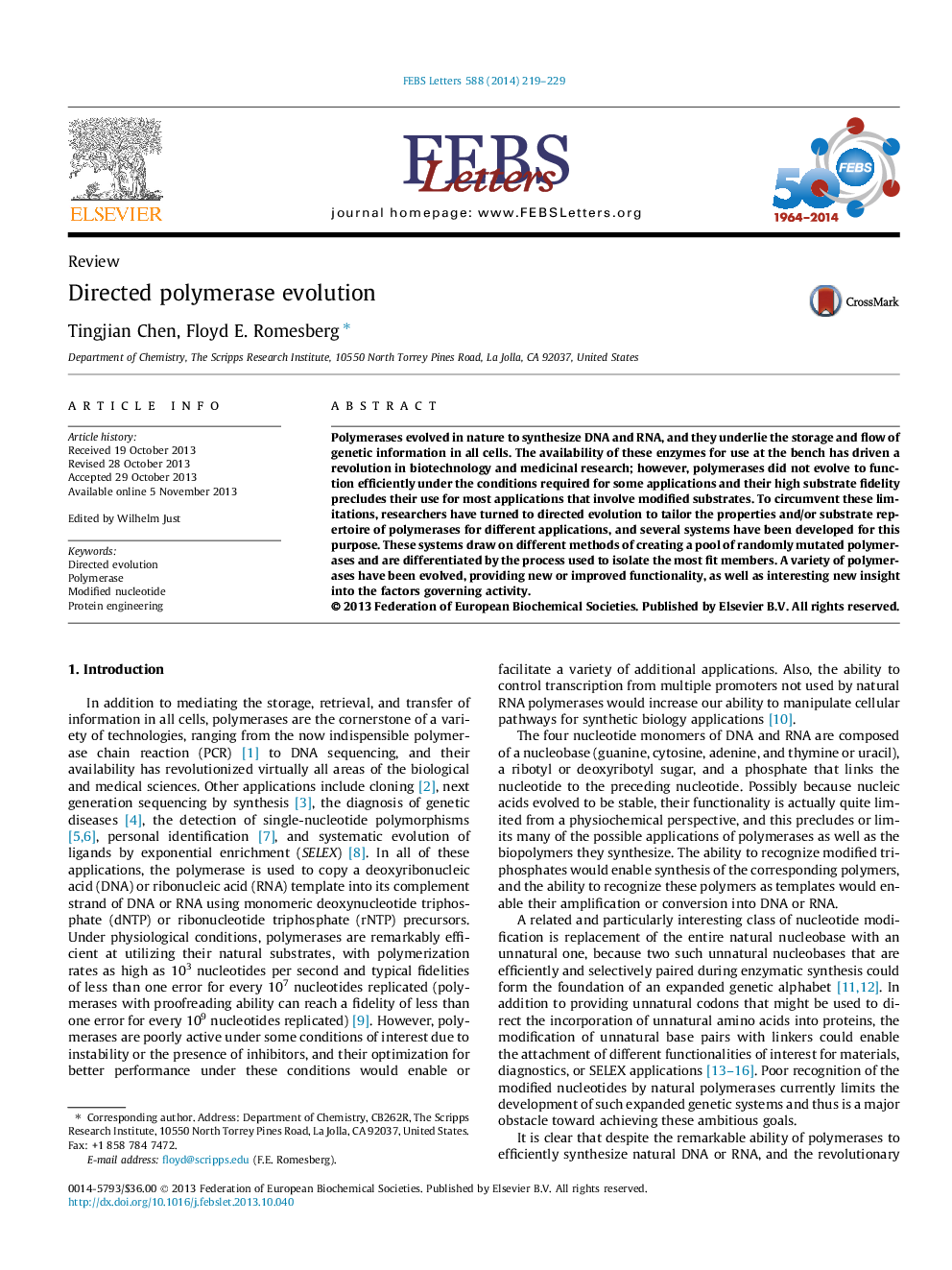| Article ID | Journal | Published Year | Pages | File Type |
|---|---|---|---|---|
| 2047761 | FEBS Letters | 2014 | 11 Pages |
Polymerases evolved in nature to synthesize DNA and RNA, and they underlie the storage and flow of genetic information in all cells. The availability of these enzymes for use at the bench has driven a revolution in biotechnology and medicinal research; however, polymerases did not evolve to function efficiently under the conditions required for some applications and their high substrate fidelity precludes their use for most applications that involve modified substrates. To circumvent these limitations, researchers have turned to directed evolution to tailor the properties and/or substrate repertoire of polymerases for different applications, and several systems have been developed for this purpose. These systems draw on different methods of creating a pool of randomly mutated polymerases and are differentiated by the process used to isolate the most fit members. A variety of polymerases have been evolved, providing new or improved functionality, as well as interesting new insight into the factors governing activity.
